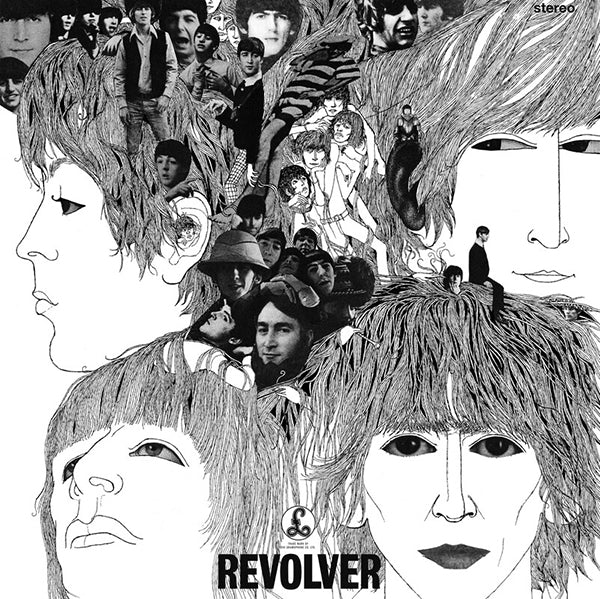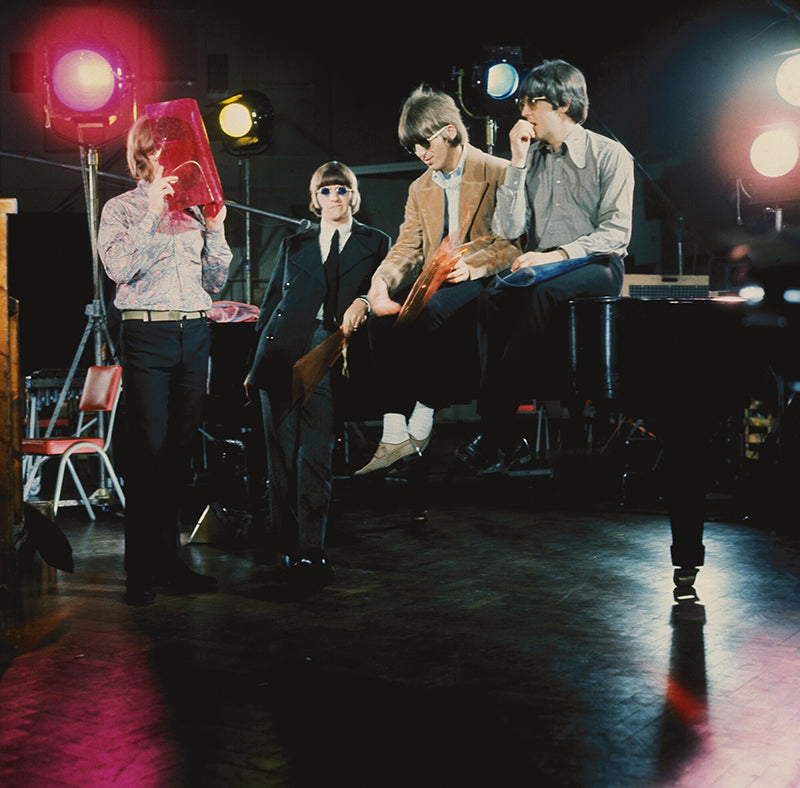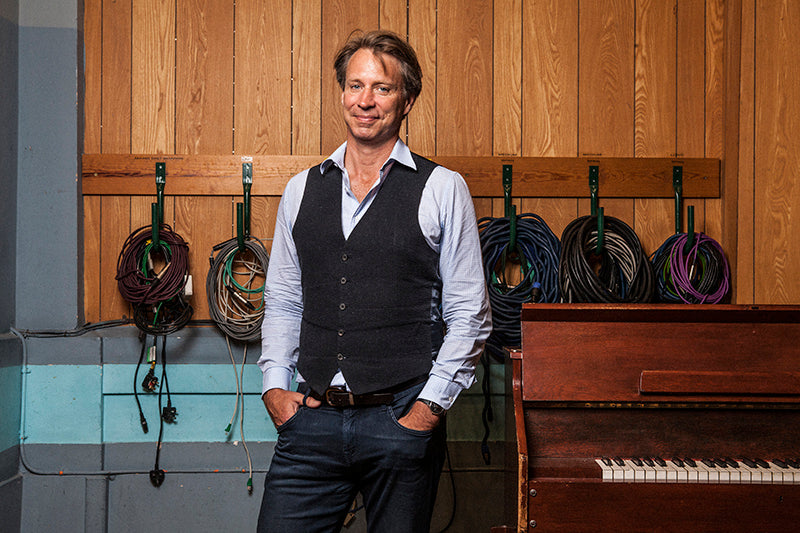Jay Jay’s review of the Revolver remixes appeared in Issue 175. Producer/engineer Giles Martin, the son of original Beatles producer George Martin, speaks with Jay Jay here.
Jay Jay French: You started your mixing career by creating the Love mixes (the soundtrack album for the Cirque du Soleil Las Vegas show) and moved up to do Sgt. Pepper’s Lonely Hearts Club Band, the “White Album” [The Beatles], Abbey Road and Let it Be. Each album was produced with ever-more sophisticated recording techniques by your father. Now, with Revolver, you are, in a sense, going backwards in terms of the source material. What were the technical challenges you faced this time?
Giles Martin: With Revolver the band had recorded all the music on one track, [with] two tracks of vocal overdubs, and one track of guitar or piano. If I just had this to work from I wouldn’t have been able to remix the album. First of all, they didn’t bounce tracks from one tape to another back then. Keep in mind that stereo was still not the main source, it was still a novelty. The technological discoveries and innovations we made during the Get Back [remixing] sessions with [director] Peter Jackson made the capture and isolation of individual instruments, vocals, etc. possible. This allowed us to pick out and separate all the instruments, drum parts and vocals, which [then] gave us the ability to mix.
[Giles also explained how they could capture and break down every sound as if they had multitrack recordings with all the parts isolated.]

The Beatles, Revolver, album cover. © Apple Corps Ltd.
JJ: Where do you place Revolver, given its recent ascension by critics to Number One as the best of all Beatles albums?
GM: I feel Revolver is the band’s most ambitious album.
They went from being this four-headed, suit-wearing beast, to where they were, in a sense, saying goodbye to the screaming girls era of “She Loves You,” “I Want To Hold Your Hand” and “Can’t Buy Me Love” and embracing their individualism, and that’s why you have an album that sounds like eight different bands playing!
I also think that Rubber Soul was their farewell to the Mersey beat era. There was a confidence and swagger that occurred from Revolver onward.
JJ: The evolution of the song “Yellow Submarine” is astonishing. According to the Geoff Emerick book [Here, There and Everywhere: My Life Recording the Beatles], your dad was away the day the final version was recorded and it sounded like there was a party actually happening there. Is that true?
GM: God bless Geoff, I grew up with him, but a lot of what he says in his book is not true. My dad was there – all those extra sounds, noises and sound effects were added by just the band.
He also said that “Blackbird” was recorded outside [in a recording studio outside of Abbey Road Studios – Ed.], which it wasn’t, and that the recording of “A Day in The Life” was an edit, which it wasn’t, so I’m not sure about his memory exactly.

Giles Martin. Courtesy of Alex Lake.
JJ: How were the backwards guitar tracks recorded?
GM: You worked out the notes on a piano, recorded it, and played it back in reverse first to see what worked. Then you had the guitar play the parts and played those recordings backwards. This way you hear where you want the notes to fall.
JJ: Has the evolution of home hi-fi and its ability to get the customer closer to what the producer/engineer actually hears at the mixing desk affected how you now produce the music?
GM: Yes. If you think about it, the speakers that were used 56 years ago to listen back in the studio are not the same as what we have now. That changes the way we have to do the mixes as well.
It was amazing how the originals sounded. Now we have to mix for people with air pods (earphones) as well as audiophiles. Young people, older fans, audiophiles – we try to please everyone.
It is crazy when some audiophile home systems cost more than my studio. Some people spend more money on cables than [I spent on] my speaker system in my [studio] room.
JJ: What were the main mics used at that time?
GM: Mostly Neumanns and AKGs. These mics were developed during the Second World War and are still at Abbey Road today, and they are still the best mics in the world.
JJ: It must be noted that the engineers at the time were all really good and knew what to do. Your thoughts?
GM: All the great gear in the world isn’t going to make a mediocre band or musician sound better.
People are looking for the magic of why the Beatles sounded the way they sounded. Was it Geoff Emerick, was it my dad (George Martin), the Neumann microphones, the J37 1-inch 4-track tape machine, the Fairchild 660 compressor?
It’s easy to record a really good artist. It’s the fact that they [the Beatles] were just really good.
They just sounded really good!

The Beatles in Abbey Road Studios during filming of the “Paperback Writer” and “Rain” promotional films, May 19, 1966. © Apple Corps Ltd.
This interview originally appeared in Goldmine magazine and is used here with permission, slightly edited from the original.
Header image of Giles Martin courtesy of Alex Lake.


